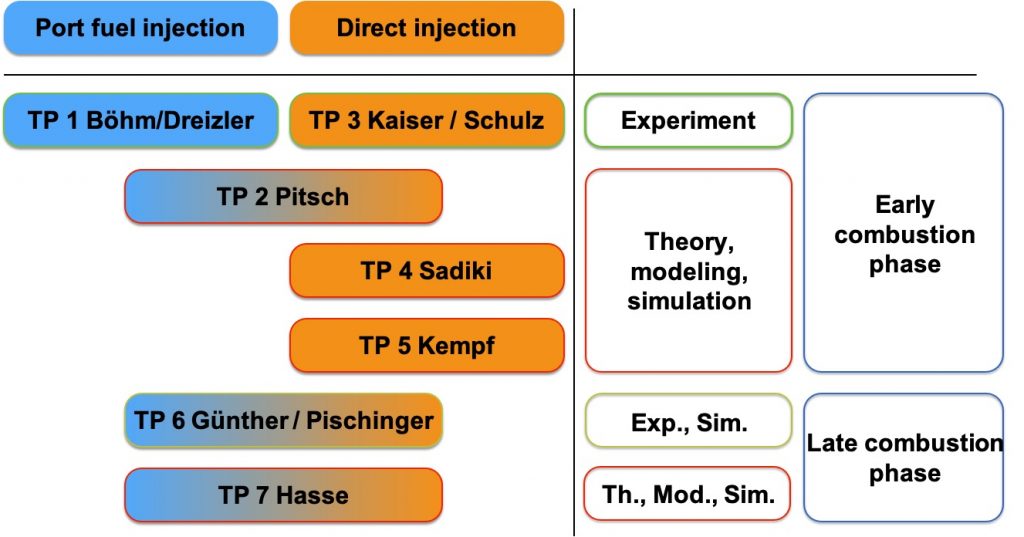The goal of the Forschungsgruppe is the systematic analysis of cyclic variations as a prerequisite for the further optimization of combustion processes in modern gasoline engines. The operating range of highly optimized gasoline engines is currently limited by the occurrence of undesirable combustion phenomena such as misfire, incomplete combustion or knock, which are significantly influenced by the cyclic variations. There are strategies to minimize such events, but they reduce the thermal efficiency and thus lead to increased CO2 emissions. For further optimization of future gasoline engines, it is necessary to expand the operating range by reducing cyclic variations. For this, a fundamental understanding of cyclic variations is essential. Currently, the causes and effects of cyclic variations are neither fully understood nor predictable. Using novel, experimental methods in combination with innovative model developments and simulation methods, a detailed understanding of the mechanisms of cyclic variations can be achieved through forward and backward analysis of the multi-scale effects chain. Three sub-goals should be achieved by a systematic joint analysis of high-resolution experiments and simulations:
- As part of the investigations, validation data will be obtained from the experiments as well as from DNS at different levels of abstraction: from simple flow configurations to the real engine cycle. The experimental data is unique in comparison to typical engine experiments, as special attention will be paid to the initial and boundary conditions that are important for the simulation, which will make the development and validation of simulation methods possible.
- Predictive models for the mixture formation as well as for the combustion processes will be developed and validated. The development of the models is based on the data from DNS and experiments obtained in the work for sub-goal 1.
- The causes and effects of cyclic variations will be examined in both the idealized Port Fuel Injection (PFI) and Direct Injection (DI) gasoline engines. For this purpose, experimental investigations and Large Eddy Simulation (LES) studies will be carried out. The aim is to characterize cyclic variations through systematic forward and backward analysis of the chain of effects and to identify the different causes in experiment and LES. For this purpose, all three primary causes: intake flow motion, mixture formation, as well as spark ignition and their effect on possible abnormal combustion behavior should be taken into account.
